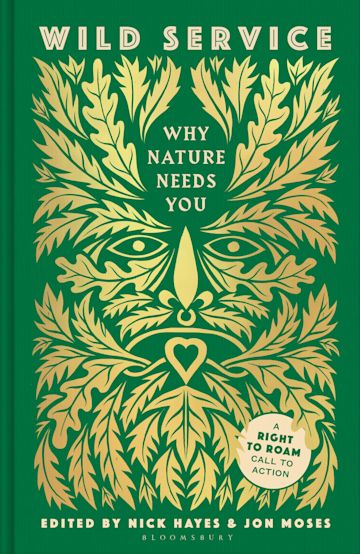
You should take it as a measure of my fairness that even though I think large parts of this book are poorly argued (hardly argued at all, really) I believe that it is so wonderfully well written, and so exquisitely irritating, that it will certainly be vying for my book of the year for 2024.
Luckily for me, it isn’t all irritating, much of it is very sensible, and almost undeniable. The great thing about the book is the quality of the writing and that is almost uniformly high.
This book is a compilation of chapters by 13 individuals with another 13 shorter accounts as working examples of how things might be different. The book wants to be the first step towards a new cultural relationship with nature, where we focus not on what rights we have over nature but on what responsibilities and deference we owe nature. That is quite an ambition.
The 13 chapters have one word titles: Reconnection, Recommoning, Stewardship, Guardianship, Kinship, Reciprocity, Culture, Education, Healing, Homage, Belonging and Inheritance which give a flavour of the wide scope and perspective of the book.
This concept of how our relationship with nature needs to change has been crafted by the pioneers of the Right to Roam campaign but, despite the words on the cover, ‘A Right to Roam call to action‘, this book is definitely not a manifesto for enhanced access to the countryside. It feels a bit like a diversion from that way forward to me and we are promised that another book will follow, one that is ‘…a practical guide to overcoming the pragmatic problems of public access to the countryside‘. I’m looking forward to that book and my expectation is that you won’t have to sign up to the vision sketched in this book to be able to support much of the manifesto in the next book – but we’ll see.
I wonder whether this is a mis-step by the Right to Roam campaign because if we need the huge culture change envisaged in this book before we can have more access to the countryside then that greater access will be a long way away, but if we don’t need the culture change for greater access to be achieved then why produce this book? One of the answers to that question is that the book is a very stimulating read and I guess that is justification enough.
This is not really a book for me except that I enjoy the challenge of competing ideas and views. It may well be a book for you, and I can imagine that for some people this is the book they didn’t know they’d been waiting for until they read it. I recommend that you read it.
Beautifully illustrated by Nick Hayes throughout. The cover? Gorgeous, isn’t it? I’d give it 9/10.
Wild Service: why nature needs you edited by Nick Hayes and Jon Moses is published by Bloomsbury.
.
Buy direct from Blackwell’s – a proper bookshop (and I’ll get a little bit of money from them)

Good morning Mark and thank you very much for reading. I’m glad you enjoyed the writing, and we take ‘exquisitely irritating’ as an interesting compliment!
I understand why you might feel conflicted, especially around the potential impacts of irresponsible/uninformed access on wildlife. But we also appreciate that you’re always up for reasoned discussion, and you know we agree on most things. So just for the record, Right to Roam is not suggesting carte blanche access all areas. What we want, instead of the arbitrary exclusion of today, is a zone system of open access, managed access and restricted/no access based on legitimate reasons such as privacy of gardens, crops, conservation and dangerous places like quarries and miliary land. This will allow for better protection of sensitive habitats, some which are currently arguably too accessible as people and nature both play second fiddle to property law and the warped perception of land first and foremost as factory floor or business premises. More than half of open access land under CRoW is also designated SSSI LNR or NNR, while vast acreages of estate land, woodland, edgelands, rivers, golf courses are no go.
As to the order of things, we fundamentally disagree with ‘if we need the huge culture change envisaged in this book before we can have more access to the countryside…’ No, they happen together. And the transitional phase is were law and a detailed and properly communicated Outdoor Access Code come in. That the change is possible we have no doubt. You only have to look at the Wye and Windermere (where people do have access) and other rivers where anglers, boaters and swimmers in particular are accessing the water with and without permission to see how fast real and effective guardianship can develop. We might also look at the recent licensing of grouse moors in Scotland as an output of greater access – give people opportunities to see for themselves the consequences of land management and they pretty soon develop an informed opinion that drives political action.
We’re really looking forward to the discussion you crave over the more practical aspects of this – it’s very much a live aspect of our ongoing work. Meanwhile, we’re very happy with the 9/10!
Amy xx
Amy – thanks. I’m looking forward to that important discussion.